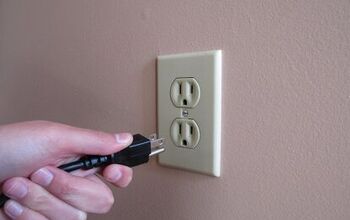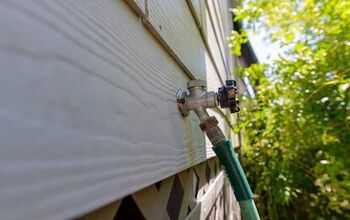Are You Making These Mistakes When Selling Your House?

Have you been trying to sell your house for a while, yet the “For Sale” sign continues to gather dust in your front yard? You could blame a volatile housing market, high interest rates, or picky buyers. However, take a closer look to see if you're making these common house-selling mistakes.
Selling your house without an agent and not making changes to appeal to more buyers are common home-seller mistakes. Failing to maintain your house while on the market and staying home during showings are other no-nos. Avoid letting your emotions take over and be wary of overestimating your home’s value, as these things can affect your house’s chances of selling.
Understandably, you want your home to sell quickly and for a great price. Finding buyers who love your home as much as you do is icing on the real estate cake. However, if you push too hard or stand too firm on how you think the sale should happen, you may likely jeopardize the deal.
Avoid These Mistakes When You Sell Your House
You don’t have to compromise on everything when you sell your house, but assuming you shouldn’t need to make some concessions is a bit unrealistic. Many times, homeowners miss a sale opportunity because they’re holding out for more money or believe their home is perfect just the way it is.
However, if you’re not careful and set your expectations too high, you may land in the clouds with no footing to help sell your home. Therefore, keep your feet on the ground and avoid making these mistakes when selling your house.
1. Not Working With An Agent
Many sellers attempt to sell their house “by owner” in hopes they’ll pocket more money after the sale. The trick is that you must sell your house for your desired price and handle all the necessary paperwork appropriately to bring these hopes to fruition.
Real estate deals come with tons of to-do lists and paperwork that are challenging to work through if you’re unfamiliar with the process. A qualified, knowledgeable agent is used to what needs to happen from start to finish when selling a home. Therefore, working with an agent means less stress and hassle, and likely, a speedier sale.
Yes, you’ll owe the agent a commission (typically, 6%). But consider this — sellers who use agents usually get more for their homes than those selling solo. Therefore, when all is said and done, you likely wouldn’t save as much money as you think going the by-owner route.
2. Using The First Agent You Find
Assuming you listened to the previous advice and decided it’s in your best interest to hire a real estate agent, avoid choosing the first agent that comes along. It’s tempting to use your best friend’s aunt or a random agent you saw on Instagram. It cuts through the process of searching, interviewing, and vetting agents, so you can get the ball rolling more quickly.
However, not all agents are a great fit for every sale. Plus, working with someone you know well might get a bit uncomfortable or awkward in particular situations. Instead, gather a list of potential agents by getting recommendations from family and friends (start with people who recently sold their homes) and scouring reviews.
Narrow the list down to three agents familiar with your area and then meet with each one. Ask them about their marketing strategy, availability, how they handle showings, and what they suggest you do to your home to help the sale.
Discuss fees, expectations (from both sides), and a projected timeline and listing price for your home. Use the answers and your gut reaction to each agent to make your top choice. Choose someone you feel comfortable with, since you’ll likely be working with this person for a few months.
3. Becoming Too Emotionally Attached To Your House
Another common mistake when selling a house is to let emotions inform your decisions. It’s essential to recognize that not everyone will love your home the way you do. Also, not everyone has the same preferences when it comes to style or decor.
If you let emotions cloud your judgment, you’ll likely end up stuck in real estate limbo. Emotions often stop people from making necessary changes, lowering the price, and responding positively to negotiations.
4. Not Maintaining Your House For Showings
You get your house in tip-top shape for the real estate photos, but then you let things slide. You skip cleaning for a few weeks, let clutter pile up as life happens, and leave the dog toys scattered across the floor.
The next thing you know, your agent calls and lets you know a very interested buyer wants to look at the house in the morning. You look around at the state of your home and think, “Oh, well, no time to do anything now.”
It’s critical to maintain your home while it's on the market. This means regular cleaning, putting things away, getting rid of clutter, and making your pets all but invisible at a moment’s notice. It’s a headache, sure, but it’s worth it if it means a successful home sale (and it makes it much easier to clean when you move).
5. Taking Your Own Pictures
Thanks to smartphones with high-pixel cameras, now everyone thinks they’re professional photographers. The thing is, excellent real estate photos don’t come from a cell phone.
They take a skilled photographer who specializes in real estate photographs and knows how to make your home look its best thanks to precise angles and lighting. Therefore, when you choose an agent, make sure they plan to use a professional and don’t intend to snap the photos themselves with their phone's camera.
6. Not Budgeting For The Costs To Sell Your House
If you’re already thinking of all the things you want to do with the money you get from selling your home, don’t forget about how much selling will cost you. On top of paying your agent their commission, you also have closing costs, usually about 3% of the sales price.
It’s also a good idea to budget for costs to prepare your home for listing. For example, you may need to make repairs, pay for staging, or come up with certain concessions as part of the final deal. You’ll also have costs associated with your impending move and new place.
7. Overestimating Your Home's Value
Let your agent guide you with a fair list price for your home based on the current market, comparable listings, and recent home sales. Homeowners usually set their home’s value higher than it actually is, typically letting emotions (or Zillow) influence them.
If you insist on asking too much for your home and it’s overpriced, it could sit on the market longer, eventually leading to a reduction. When people see a price reduction in a property history, it usually reads as a red flag to home buyers.
8. Underestimating The Power Of Staging Your House To Sell
It’s worth the time and effort to stage your home. You may view it as an extra cost, but staging typically leads to a faster sale because it makes your home more appealing to a broader buyer pool. A staged home could also sell for more than one that isn’t staged.
9. Staying Home During House Showings
Don’t stay home during house showings. When sellers stay home, buyers don’t feel as comfortable speaking freely or asking questions. They also may not get as good a look at the house. These things could lead buyers to draw the wrong opinion or feel unsure about the property, which often means they don’t make an offer.
Go anywhere else, whether it’s to grab a quick coffee, take a long walk around the neighborhood, or go for a drive. Showings average between 30 minutes and one hour, so it is not very long for you to find something else to do.
10. Ignoring The Buyer's Point Of View
Viewing your house through a neutral lens is imperative when you put it on the market. You're used to your home and all its quirks and flaws, so you tend to ignore them. However, a buyer seeing your home for the first time will likely notice everything.
Make minor repairs, remove overly personal and stylized belongings and decor, and neutralize your home. The goal is for your house to appeal to most buyers. After preparing your home, take a few pictures and view the photos to see your home from a different perspective.
Improve Your Chances Of Selling Your House
It may not be possible to avoid making any mistakes when you sell your home, but knowing these common faux pas certainly helps improve your selling odds. The first step is hiring a professional, knowledgeable agent you trust to help guide you through the process.
Keep an open mind and be ready and willing to make changes to ensure a successful outcome. If the buyers still don’t bite, it might not be the right time to sell. However, trust your gut and your agent to decide the next best step.
Related Guides:

Stacy Randall is a wife, mother, and freelance writer from NOLA that has always had a love for DIY projects, home organization, and making spaces beautiful. Together with her husband, she has been spending the last several years lovingly renovating her grandparent's former home, making it their own and learning a lot about life along the way.
More by Stacy Randall



























